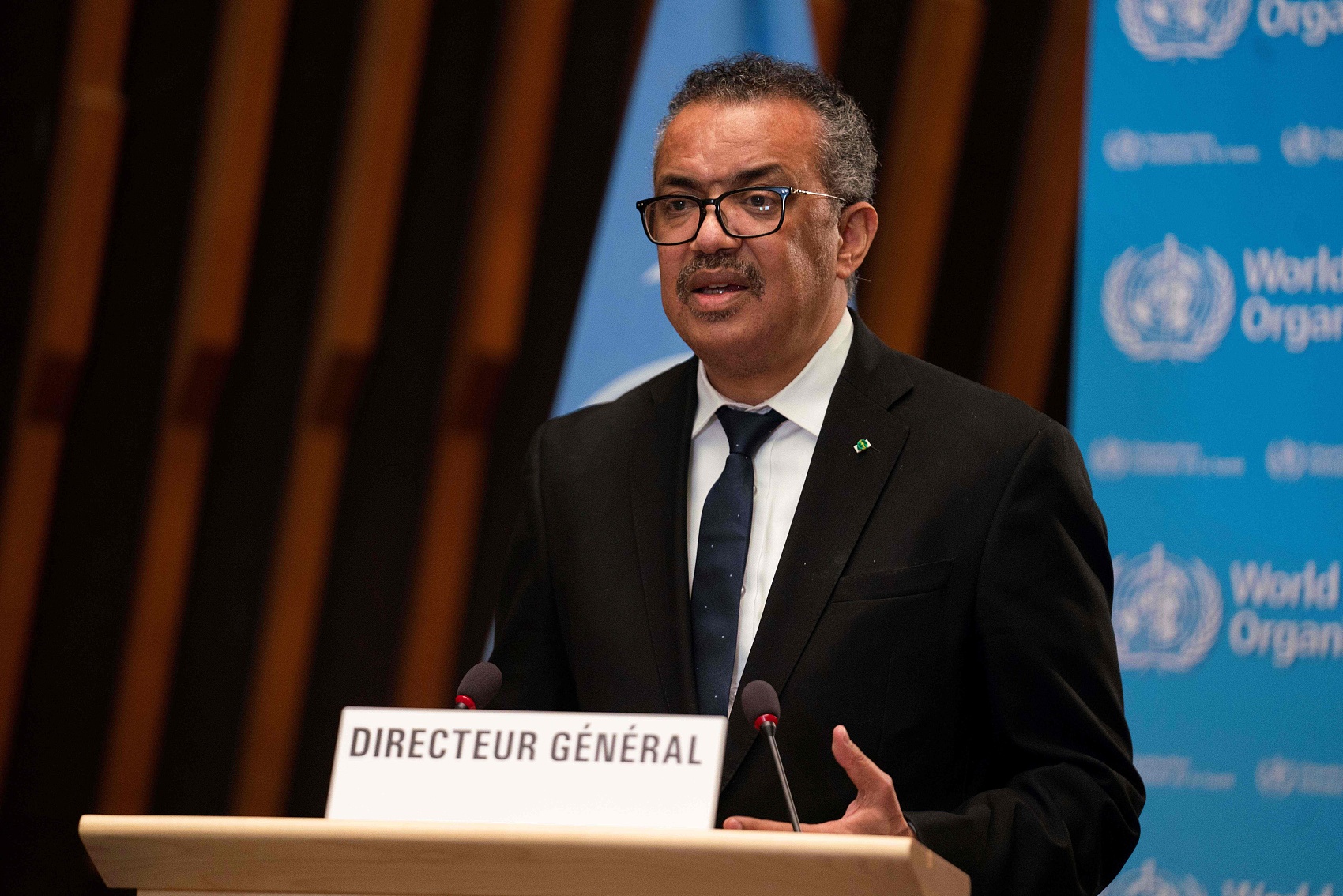In his opening remarks on Monday at the 148th session of the global public health watchdog's executive board, World Health Organization Director-General Tedros Adhanom Ghebreyesus urged governments to guarantee the world's poor have equal, timely access to COVID-19 vaccines.

This handout picture taken and released on January 18, 2021 by World Health Organization (WHO) shows WHO Director-General Tedros Adhanom Ghebreyesus speaking during the opening of the 148th session of the WHO Executive Board in Geneva.(Photo: CFP)
The efficient development and approval of multiple vaccines has offered the world a chance to contain the COVID-19 pandemic. But "the wall of inequality between the world's haves and have-nots" may provide an opportunity for the novel coronavirus to advance and generate new mutants, the WHO chief warned.
"More than 39 million doses of vaccine have now been administered in at least 49 higher-income countries," he said. "Just 25 doses have been given in one lowest-income country. Not 25 million; not 25 thousand; just 25."
He challenged member countries to ensure that by the time World Health Day arrives on the 7th of April, COVID-19 vaccines are being administered in every country.
For that to happen, though, the WHO sponsored Access to COVID-19 Tools Accelerator and its COVAX vaccine pillar must work together, so that poorer nations have equitable access to COVID-19 tests, treatments and vaccines. Offering their support, Chinese COVID-19 vaccine developers Sinovac, Sinopharm and Cansinobio have submitted applications to join COVAX.
The traditional approach to vaccine development Chinese scientists have adopted is well-tested and has proven safe and cost-effective. It also means Chinese vaccines are suitable for countries that lack the cold storage facilities as required for some of the vaccines developed elsewhere.
Just as the Mexican president pointed out, the Chinese vaccine his country received does not require storage at ultra-low temperatures, and it is thus very friendly to those living in remote areas. No wonder Chinese vaccine developers have signed contracts with 16 countries and regions on the procurement of over 500 million doses. And that inoculation programs using Chinese vaccines have begun in a number of countries.
No matter what the developed countries say about Chinese vaccines, the products are being warmly received.
Beijing's promises to make its vaccines a global public good and to prioritize African countries in the distribution of its vaccines are in stark contrast to the hoarding of vaccines by rich countries and their me-first approach, which have rendered already vulnerable populations even more vulnerable.
So far, it looks like China is the only supplier country now distributing its vaccines following the WHO road map. Not to mention its provision to African countries will in part be in the form of donations and free aid. Other COVID-19 producing countries should follow China's example and commit to ensuring vaccines are accessible, available and affordable to developing nations. Even with the best will in the world, China cannot do it alone.


